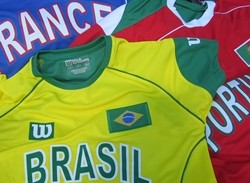 We take it for granted whether at home or work and only really notice it when it doesn’t work or when the bill lands, but electricity is a critical element in all our lives. At some times more so than others. The average household or business could possibly live with a power cut in the middle of the night as the family are asleep or the business all locked up, but there are certain times when a power interruption will simply not do… rarely can this ever more be the case than during an England World Cup game!
We take it for granted whether at home or work and only really notice it when it doesn’t work or when the bill lands, but electricity is a critical element in all our lives. At some times more so than others. The average household or business could possibly live with a power cut in the middle of the night as the family are asleep or the business all locked up, but there are certain times when a power interruption will simply not do… rarely can this ever more be the case than during an England World Cup game!
Ok there are only ever likely to be 3 group games for the 3 Lions to tackle but the electricity networks, or more specifically National Grid, the controller of the pipes and wires of the UK energy infrastructure, need to be prepared throughout the tournament for England eventualities and spikes in demand.
“TV pick-ups” are the term for those instantaneous spikes in demand as the first half closes and the kettle kicks on, (or fridge opened more likely if past watching of England is anything to go by), the beer taps flow again and the computer cranks up to extol the displeasure at the latest anaemic showing from the boys in white.
The National Grid estimates that these TV pick-ups will demand an extra 2,800MW of power, the equivalent of 1 million kettles instantaneously and simultaneously being switched on.
That is a huge increase in demand and with mass electricity storage still some years away, the supply of additional energy needs to instantly match the demand, added time at the end of the first half can be the crucial factor in keeping the lights and match on or losing our connection to Brazil. A miscalculation by the boys at National Grid could spell curtains for Brazil 2014 on our screens.
A spokesman from National Grid explained:
“We are expecting lots of people to watch on television and we have a forecasting team of four or five working on this now. On the day there will be system managers in the room with them constantly watching and assessing demand. But ahead of that we will be forecasting the weather and trying to work out whether people will watch in the pub or at home so we can be ready to deal with the likely extra demand”
The time of day doesn’t impact the surge either, although half-time was 10am in the England v Brazil match in Japan 2002 (we lost, again), nearly 2,600MW was needed to cope with the demand spike.
In the event of a miscalculation however National Grid do have a back up plan known as the Short Term Operating Reserve (STOR) which is effectively a country-wide linked network of different generation sources, diesel, hydro and biomass plants which can provide short term boosts of 3,000MW where needed. Well that’s the theory anyway.
Let’s hope there’s not too much injury time at the end of the first half tomorrow or we might miss the point that England rise from the ashes and finally put in a performance to grace the shirt after all these years.
Or then again maybe not.
